Large Foliage.
TheMasterGardener1
11 years ago
Related Stories
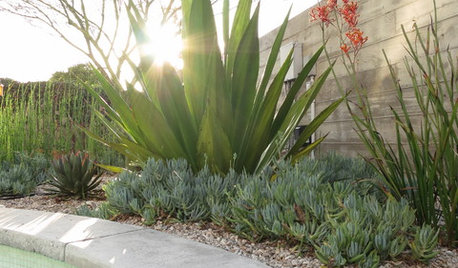
PLANTING IDEASBig Foliage for Small Spaces
Use bold, large-leaved plants to create intriguing contrast in a garden where they’re least expected
Full Story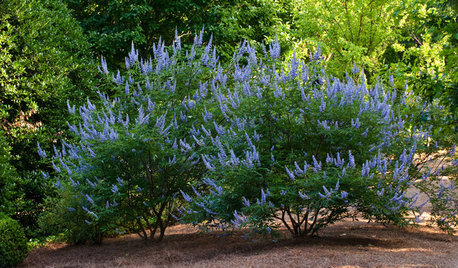
FLOWERS AND PLANTSVitex Agnus-Castus Fills Gardens With Fragrant Blooms and Foliage
Spikes of purple flowers adorn chaste tree’s aromatic foliage throughout the warm season in Southern gardens
Full Story
GARDENING GUIDES8 Plants Bursting With Beautiful Fall Foliage
Luscious berries, rich crimson leaves and stellar stalks show that nary a flower is needed for enthralling autumn gardens
Full Story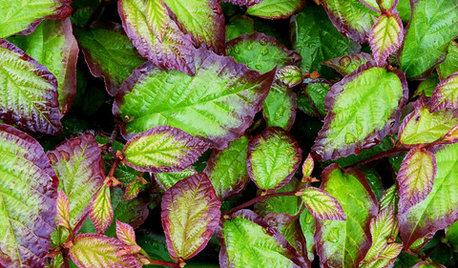
GARDENING GUIDES7 New Plants to Grow for Beautiful Foliage
Add color, structure and interest to your garden with these recently introduced plants that sport exceptional foliage
Full Story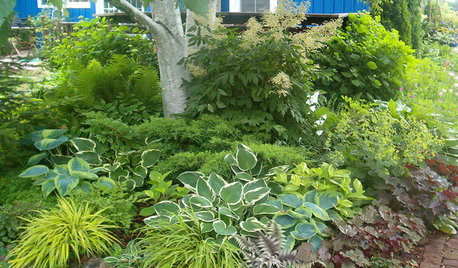
GARDENING GUIDESUnsung Garden Hero: Fantastic Foliage
For richness and beauty in the garden with less fuss than most flowers need, look to amazingly diverse foliage plants
Full Story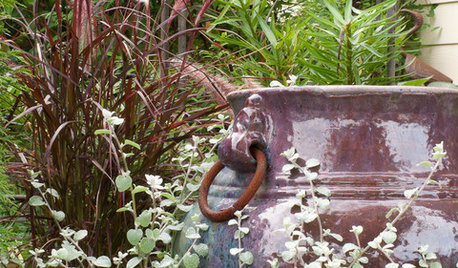
PLANTING IDEASGreat Garden Combo: Silver Sparkles Amid Purple and Blue Foliage
Get the look of this modern foundation planting by focusing on a restrained color palette with tasteful accents
Full Story
LANDSCAPE DESIGN10 Evergreens for Beautiful Foliage All Year
Give your landscape consistent color and structure with the emeralds, chartreuses and blues of evergreen trees and shrubs
Full Story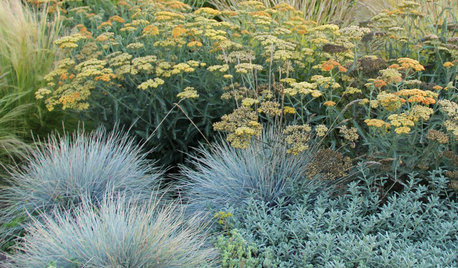
LANDSCAPE DESIGNTexture Talk: 4 Foliage Types for Distinctive Gardens
Contrast these leaf textures for plants that stand out and a landscape that draws you in
Full Story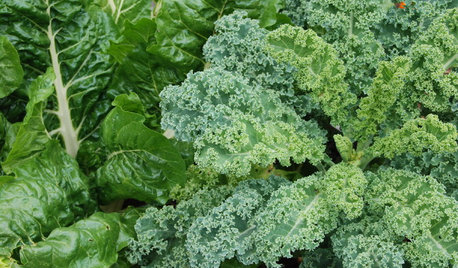
FALL GARDENINGFrost-Hardy Foliage That Loves a Cold-Climate Garden
When winter cuts a bleak swath through other plants, these edibles and perennials flourish brilliantly
Full Story
GARDENING GUIDES10 Native Wildflowers With Unique Foliage
When the flowers fade, these leaves keep the garden looking good
Full StorySponsored






nc_crn
chilliwin
Related Professionals
Holly Springs Landscape Architects & Landscape Designers · West Milford Landscape Architects & Landscape Designers · Lakeland Landscape Contractors · Tempe Landscape Contractors · Azalea Park Landscape Contractors · Fort Payne Landscape Contractors · Hayward Landscape Contractors · Miller Place Landscape Contractors · Morrisville Landscape Contractors · Muttontown Landscape Contractors · North Ridgeville Landscape Contractors · San Antonio Landscape Contractors · Santa Maria Landscape Contractors · Shaker Heights Landscape Contractors · Tewksbury Landscape Contractorschilliwin
greenman28 NorCal 7b/8a
chilliwin
greenman28 NorCal 7b/8a
chilliwin
greenman28 NorCal 7b/8a
chilliwin